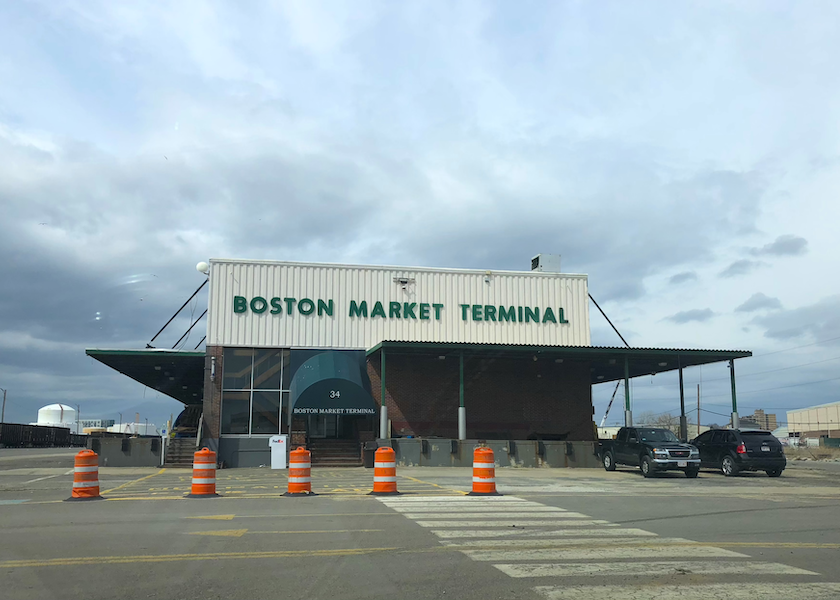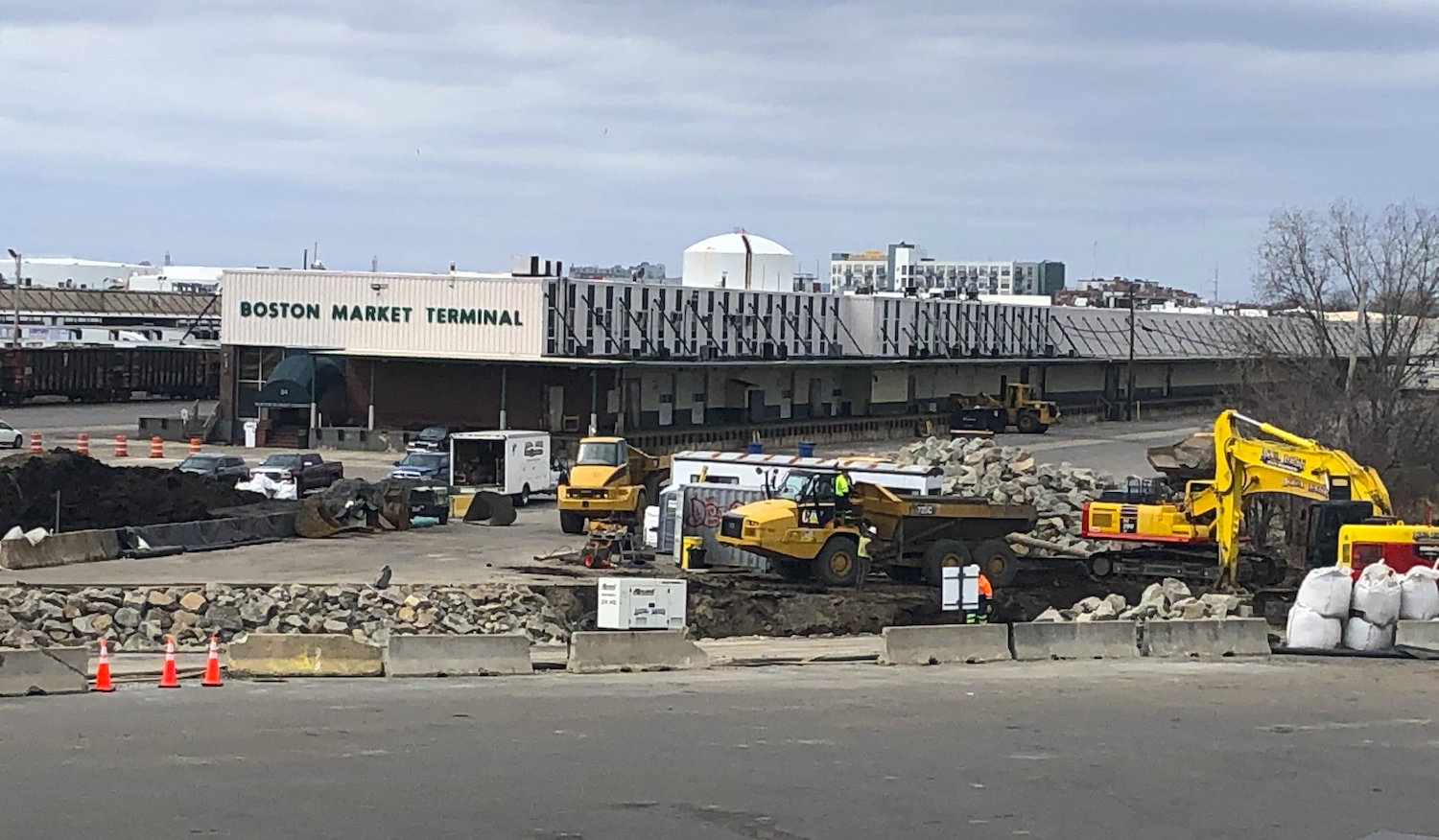Boston Market Terminal closes for good

After more than half a century filled with fresh fruit and vegetables, the Boston Market Terminal’s docks, platforms, bays and aisles are now hollowed out.
No one is shouting or laughing amid the typical organized chaos. Yellow construction trucks, rather than white reefer trucks, are tearing up gravel outside.
Big change is afoot.
The Davis Cos., a national real estate developer, bought the place, 90% of which was owned by the Piazza family, Condakes family and DiMare family, and 10% by minority stockholders.
Community-Suffolk Inc.’s Steven Piazza and his brothers were the last to uproot themselves from their 30,000 square feet of operating space at the Everett, Mass., institution, in early 2021 — a year stamped by so much change already.
“When you’ve been operating in a certain fashion in the same place for years that you owned, you get used to doing things in a certain way,” said Piazza, managing partner. “It was a big change, and change is hard the older you get. It’s forcing us to get modernized and more efficient. Once we work out the kinks, I think it will be better.”
Their fourth-generation family wholesale produce company was also one of the first to plant themselves at the 110,000-square-foot rail and truck terminal on almost 18 acres of land abutting the New England Produce Center in Chelsea, both just outside Boston.
“We were one of the first ones in and the last ones out. I’ve been here since I was 14 myself. I unloaded potato freight cars back then,” Piazza said.
Since the developer’s $28.5 million purchase, announced December 2019 in the Chelsea Record, the terminal’s six wholesalers and other businesses and organizations have closed for good or scattered to other facilities nearby.
The property may be redeveloped into an Amazon distribution center, Piazza said.

For now, the warehouses are devoid of the hum of daily wholesale produce business.
American Fruit Distributors went out of business, Piazza said.
Community-Suffolk’s citrus operations are at the New England Produce Center and its vegetable operations are at 95 Market St., Chelsea, “which is literally 500 feet from the front gate of the market terminal,” Piazza said.
Solo Produce is renting a place next to them, he said. New England Banana Co. merged its ripening and wholesale operations in an offsite warehouse it already owned.
James Praski, Massachusetts officer-in-charge for the U.S. Department of Agriculture’s Specialty Crops Market News, has transitioned his training and reporting headquarters to the trailers the developer set up a short walk from the New England Produce Center.
The USDA’s lease at the terminal lasts until August 2023, he said.
“It was a good run,” Praski said about the market terminal. “People made a tremendous living being in this business in that time frame, and we’re all blessed and very lucky to have an opportunity in that market and service the public the way we did.”
Before Praski’s more than a dozen years with the USDA, he was a produce manager and new-store merchandiser of Almacs Supermarkets in Rhode Island for 25 years.
Terminal business was fading over the past several years as retail chains built their own warehouses and hired their own buyers to deal directly with distributors, growers and shippers. In reaction, terminal markets such as the Boston market shifted toward more foodservice business, Praski said.
“But with this COVID the last year now, the terminals, to survive, have had to move back to retail. Sometimes it works. Sometimes it doesn’t,” Praski said. “It is a power struggle, and it will be a power struggle for a while, and the strong businesses will survive, and those that don’t have the young kids coming in won’t.”
The past five years have seen a lot of consolidation, and then the pandemic hit this restaurant-foodie haven region of New England, Piazza said.
But Massachusetts has reopened its restaurants for indoor dining, so it looks like the region’s economy is reawakening.
Piazza’s niece started working for the family business, and they’re updating the new 12,000-square-foot facility’s warehouses, coolers, platforms and offices to modern food safety standards.
“We’ve changed our business, selling tactics and product mix and are back to 75-80% of business; it’s definitely gradually improving,” Piazza said. “We’re hoping the pandemic shrinks and the business grows, and that we’re here for another generation.”







